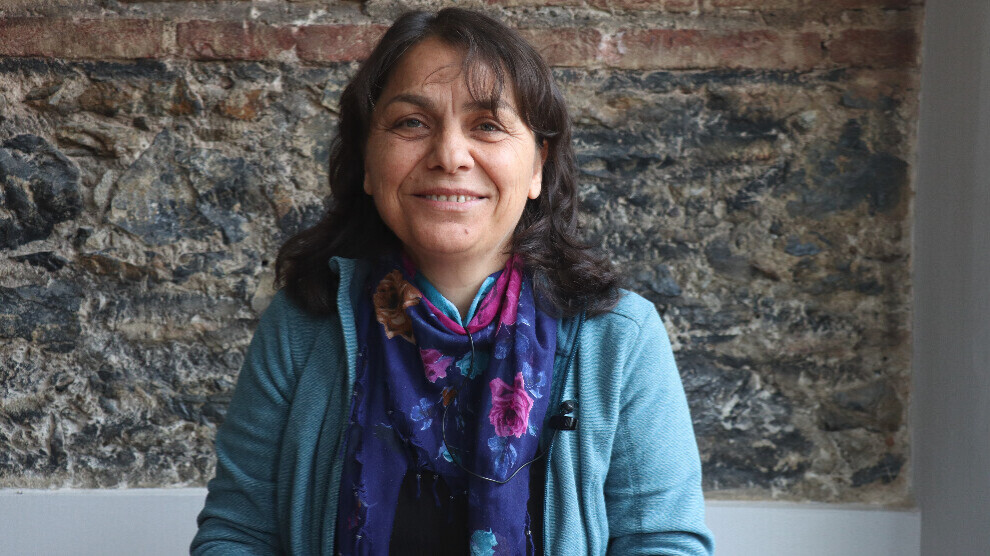Istanbul HEDEP MP Özgül Saki described the isolation on Imrali as an expression of Turkish state policy. “It started on the prison island, but now everyone who doesn’t fit into the image of the regime is isolated.”

More than 25 years have passed since the beginning of the international conspiracy that led to the imprisonment of Abdullah Öcalan and his total isolation in Imrali on 15 February 1999. During this time, he promoted various initiatives from Imrali to resolve the Kurdish question. However, the AKP has repeatedly prevented peace. With the end of the peace process, the isolation conditions under which Abdullah Öcalan was held were tightened. There has been no sign of life from Öcalan for more than 30 months. This has also led to a massive restructuring of society. Isolation has become a technique of domination. HEDEP MP Özgül Saki talked to ANF about all of this.
Isolation is the Achilles heel of the AKP-MHP regime
The MP said: “We are dealing with a regime that began with isolation on Imralı and is trying to extend this isolation as a mean of rule to all areas of society. The AKP-MHP regime institutionalized isolation that became practically congruent with the state. It has become established in all institutions of the state, especially in the law enforcement authorities and the security forces. So what measures can we take to combat isolation and isolation? Is there a possibility of a common fight? What tools are available to us for this? There should be much more discussion about the answers to these questions.”
According to Saki, the issue of isolation is the most sensitive point of the AKP-MHP regime. “Anything that addresses isolation is immediately targeted by the judiciary and law enforcement authorities. We can remember, for example, Merdan Yanardağ. The whole world knows that his political stance has nothing to do with the political stance of the Kurdish freedom movement or the political stance of Abdullah Öcalan. Nevertheless, he was detained because he emphasized that the isolation in İmralı has no basis under international law and must be ended. Therefore, I would like to emphasize that this isolation does not only affect İmralı, but has an impact on the entire social fabric.”
We must discuss the means of collective struggle
The MP recalled that there are similar examples around the world. She underlined the need to talk about the possibilities of collective struggle: “We must take into account historical and social developments. Although the isolation lasted almost 25 years, neither the political struggle of the Kurdish freedom movement nor the political struggle of the revolutionary, socialist and feminist movements ended. They will continue and, in accordance with these political goals, the dream of a free and fair life for all peoples, a life without oppression, will be pursued. Therefore, we should take inspiration from places where the struggle continues under today’s conditions, such as in Latin America. In the last elections in Colombia, for example, a former guerrilla was elected president. There are currently efforts in Colombia to rebuild society and negotiate peace. A peace agreement with the FARC has already been signed. The new president now says it is possible to build peace together with other armed groups. How has this developed in Colombia? Maybe such examples can inspire us. In the previous peace process there was a platform called ‘Women for Peace’. I can talk about it because I spent a lot of time there. International solidarity, particularly in Latin America, is not limited to Colombia. In Mexico and Brazil, left-wing governments have come to power, one after the other. This has a uniform effect on all other countries. In order to promote similar developments in our region, we must first discuss the possibilities and means of collective struggle within our borders.”
Victims of isolation must come together
Saki concluded by drawing up a concrete perspective on the social struggles in Turkey and Northern Kurdistan: “After the state ended the peace process and mobilized all its institutions to enforce a military solution, the entire social opposition and the revolutionary movement in Turkey followed suit. As a result, the relationship with the Kurdish freedom struggle has deteriorated. These relationships should not only exist during election campaigns. Women are also isolated from society. The AKP-MHP regime isolates anyone protesting their version. However, workers’ resistance has increased. For example, look at the struggles of Agrobay, Trendyol or Sputnik. There we see that there is an attempt to completely break the relationship between the resistance and the media. This is also evident with the Saturday Mothers. It is another form of isolation that attempts to silence their voices and prevent all communication. Breaking through this will only be possible through the collective struggle of each and every one of us in all political areas.”
Using the example of Giordano Bruno and Camille Claudel
Saki said: “There are also examples of self-confidence. Take Giordano Bruno, for example, who theorized about the heliocentric worldview even before Galileo Galilei confirmed it. He was burned as heretical, but Galileo continued his work and is now world famous. Consider Camille Claudel (19th century, France), a sculptor who spent 40 years of her life in a mental institution because her art was creative and rebellious. Nevertheless, her rebellious spirit inspires many people today. These examples from history show that specific historical and social situations can cause resistance and ideals to endure. Our current responsibility is to transform this historical and social moment into a common struggle for oppressed people, struggling peoples and women. We must stand together against a regime that institutionalizes fascism and continues to expand its rule. The post-election shock has been overcome and I think we will now take this path.”








Leave A Comment